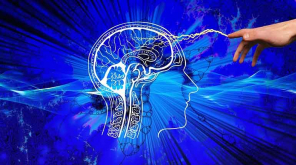ads
Neuroscience and Smell Restoration Technology- Massachusetts Researchers Findings
Uma (Author) Published Date : Nov 28, 2018 14:23 ISTTechnology News
The researchers at Massachusetts placed electrodes in the nose and used electricity to stimulate the brain and the Olfactory Nerves responsible for the food smell. Almost 5% of the current population are suffering from loss of smell or anosmia, due to various reason including head injury, viral infection, aging, blockage in sinus passage due to the common cold. The smell of the food increases the palatability and the appetite, and enjoy the food to the maximum extent. It also helps to detect the gas leaks, which in turn helps to prevent accidents. The smell also helps to avoid eating contaminated foods that produce a bad smell, which is hazardous to our health.
Dogs have a strong power of smelling due to 220 million olfactory receptors but normal humans have only 5 million receptors. Dogs can pick up scents that are diluted to 1 or 2 parts per trillion, which allows them to smell things buried as far as 40 feet underground and hence used by the police for investigations.
The scientists focused their research on the olfactory bulb, where smells are processed in the brain. The nerves of the olfactory bulb are stimulated here and the information can be sent to even the deeper regions of the brain. They hope to eventually reestablish smell in people who lack the sense of smell. The cochlear implants patients regain their hearing loss, which use electrodes to stimulate hearing nerve, and have been highly successful.
The researchers said they had to perform the experiment on people with an intact sense of smell, bypassing the nasal neurons was a useful route of future therapy. Three patients described sensations of smell, including reports of onions, antiseptic, sour and fruity aromas, as a result of the stimulation.
They were published in the journal, International Forum of Allergy and Rhinology. The method of electrical stimulation had proven success in other sensory systems, which includes the hearing.
Neuroscience and Smell Restoration Technology- Massachusetts Researchers Findings
Related News


